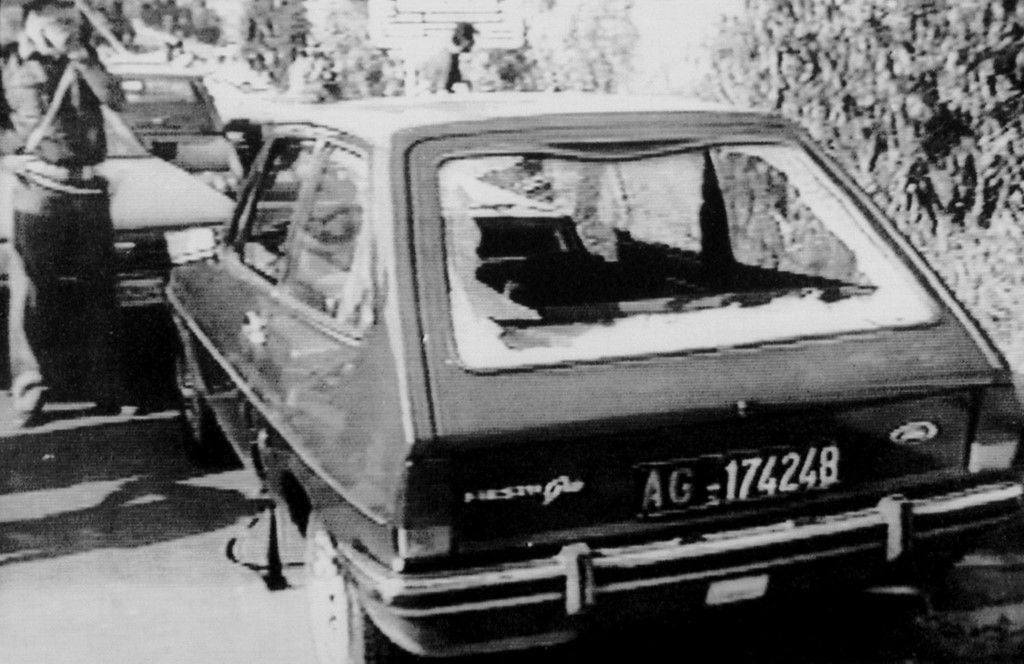Judge Rosario Livatino, who was 38 years old when he was assassinated by the mafia in Sicily on September 21, 1990, was beatified this Sunday in the Sicilian cathedral of Agrigento (south of Italy) at a mass in homage to a “martyr” of justice.
A reliquary containing his bloody shirt was placed in the cathedral, while in the Vatican Pope Francis paid tribute to “A martyr for justice and faith”.
“In his service to the community as a righteous judge, who never allowed himself to be corrupted, he strove to judge not to condemn but to redeem,” said the pope after praying the Regina Coeli.
“His work always put him ‘under God’s protection’, that is why he became a witness of the Gospel until his heroic death,” he added.
The Italian magistrate, who refused to use an armed escort, was assassinated a few kilometers from his home, near Agrigento, when he was preparing to take house arrest measures against members of the great families of the Sicilian mafia (Cosa Nostra).
When the police arrived at the place where he lay with his head shattered, they found his agenda, with the acronym “STD” registered on the first page, as in all your files. This is the ancient invocation ‘Sub tutela Dei’ (‘Under God’s protection’) used by magistrates in the Middle Ages before making official decisions.
Rosario Livatino went to church every morning before heading to court. His notes revealed the strength of his professional commitment inspired by his religious convictions: he apologized to God for the risks to which he exposed his relatives. “Doing justice, he wrote, is like praying and consecrating your life to God”.
Livatino had left his girlfriend two years earlier, with her arrangement. A missionary of justice, he told his dismayed parents, cannot involve a wife and family in his adventure.
On a visit to his parents in 1993, John Paul II described Rosario Livatino from “Martyr for justice and improperly for faith”.
“What did I do to you, little ones?” were his last words looking at his two young assassins, revealed a repentant. Later Rosario Livatino he received bullets in his mouth to symbolically reduce him to silence.
It was “The complaint of a just man who knew he did not deserve this unjust deatha, ”Pope Francis commented, in a recent foreword to a book consecrated to the judge.
“An example” for the pope
“Livatino is an example not only for the magistrates, but for all those who work in the field of law”, says the Argentine pope, and points out that it is “A point of reference” in order to “The young people who are still attracted by the sirens of the mafia in a life of violence, corruption, oppression and death”.
Luigi Ciotti, a priest famous for his fight against mafias, considers that the Sicilian judge died “For his loyalty to a profession lived as a true vocation, a service rendered and never an exercise of power.”
“I see the darkness in my future”, wrote Rosario Livatino recalls Father Ciotti.
“He was one of the first magistrates in Italy who applied measures of confiscation and seizure of gangster assets. He understood that this would lead to the weakening of the clans, their loss of control and social prestige”, it says in the preface to a biography published on Sunday.
Today a youth cooperative still bears his name and cultivates land confiscated from the Sicilian mafia.

Since his election, Francisco has faced gangsters head-on, who sometimes support parishes.
In 2018, he went to Palermo to pay tribute to the priest Giuseppe Puglisi assassinated 25 years before (and beatified in 2013) for having tried to remove from the tentacles of the Cosa Nostra young people from a disadvantaged neighborhood. “You can’t believe in God and be a mobster,” said the pope.
His murder occurred in a country still traumatized by the attacks that had just killed the anti-mafia judges Giovanni Falcone and Paolo Borsellino.
In Naples, bastion of the Camorra, Francisco also condemned in 2015 the organizations that “They exploited and corrupted the young, the poor and the underprivileged”, and added that “Corruption sucks.”
In Calabria, ten months before, he asked the Catholics “fight” to the ultra powerful ‘Ndrangheta.
“Those who in their life chose this path of evil, like gangsters, are not in communion with God, they are excommunicated”, stated.
Excommunication is the most severe penalty contemplated by the Catholic Church against its members.

:quality(75)/cloudfront-us-east-1.images.arcpublishing.com/elcomercio/RQMIK6LDCVESLIGDXPVFEVOLH4.png)